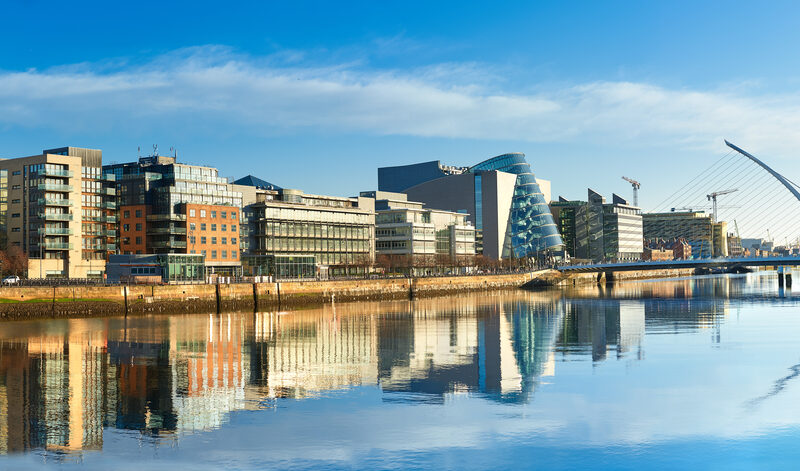Why aircraft leasing companies want to drive SAF

Dublin is the centre of commercial aircraft leasing
Silicon Valley is the global hub for technology start-ups. Hollywood controls the film industry. Ireland is the same for aircraft leasing. An aircraft owned by an Irish lessor takes off every two seconds. The (1975) rise and (1992) fall of Guinness Peat Aviation, then the world’s largest lessor, created a unique pool of talent and the country was clever enough to build on it with a network of treaties and support services.
More than 50 aircraft leasing companies are based in Ireland (including 14 of the 15 largest). Together they manage more than 6,000 commercial aircraft which they lease to airlines around the world.
Aircraft Leasing Ireland, the industry’s trade body, commissioned KPMG to look at options for producing Sustainable Aviation Fuel (SAF) in Ireland. The report was published last week. KPMG believes that SAF produced from biofuels can supply demand up until 2030 but the real opportunity is to use Ireland’s offshore wind power industry (and Ireland’s wind) to create e-fuels from power-to-liquid. The country used 1Mt of jet fuel in 2019. The report says that Ireland could, in theory, produce 23Mt of power-to-liquid e-fuel.
Leasing companies want to be part of the solution. “Transitioning aviation to net zero is about our license to operate,” says Jan Melgaard, chair, Aircraft Leasing Ireland’s Sustainability Committee, and, executive chair, FPG Amentum, an aircraft leasing company. “Lessors have influence as buyers/owners of more than half of the global aircraft fleet. We are keen to play a role facilitating our customers’ transition to SAF.”
Melgaard says that lessors are keen to work with airlines, the Irish government, technology companies SAF producers and other stakeholders to create an Irish SAF industry. Ireland is a natural first step for Aircraft Leasing Ireland, but ultimately it wants to assist customers around the world.
“Price is important but in the future it may be just as important to see how much SAF you can secure.”
“SAF is in very short supply and will remain so for many years” says Melgaard. “Price is important but in the future it may be just as important to see how much SAF you can secure. Lessors could play an important role by helping their clients access SAF” Melgaard is confident that the larger airlines – many of whom already have uptake agreements – will be able to source SAF, but he believes that small to medium sized airlines could be challenged.
Melgaard says that leasing companies could also become investors in research and development as well as SAF manufacturing. The world’s 10 largest lessors have a combined portfolio of more than $150bn.
“Lessors are relatively conservative, but SAF investments will happen.”
“Lessors understand the importance of SAF and are well positioned to understand the challenges of the sector compared to many investors. However, leasing companies are driven by financial returns and want a clearer policy environment – particularly regarding e-fuels,” says Chris Brown, head of strategy and global chair, Future of Flight, KPMG Ireland. “It is only a matter of time before we see investments – interest from the sector will rise once we see the first deal.”
Brown says that aircraft leasing companies are taking a similar approach to electric and hydrogen aircraft. “Lessors are relatively conservative, but SAF investments will happen,” he says.
Most leasing companies borrow debt from banks and by issuing bonds. There are concerns that banks will reduce their aviation lending if airlines and lessors cannot show that they are cutting emissions. “It is all becoming very real now and frankly most lessors are light-years behind where they should be,” says one former leasing company CEO.
Melgaard has been focused on decarbonising aviation for longer. “At a dinner party, seven years ago, a friend asked me ‘how is aviation going to stop polluting?’ I didn’t know so I went and researched it,” he says. “Today we as an industry are at a point that there is fair consensus on what we need to do to get there by 2050. Not all industries can say that. We all know that it is going to be a big challenge but we have the plan to make it happen and our main focus will be on commercial scaling.”
Subscribe to our free newsletter
For more opinions from SAF Investor, subscribe to our email newsletter.
